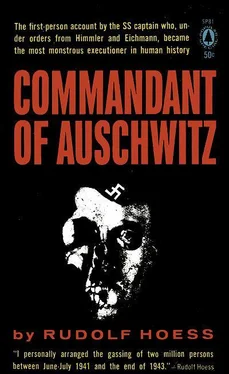Among all the crowded impressions of that time it is now impossible to recall exactly how I was affected by my first contact with wounded soldiers. I can still remember the gory bandages around heads and arms, and our own field-gray uniforms, and the prewar blue tunics and red trousers of the French, all stained with blood and mud. I still hear their stifled groans as they were loaded into hastily prepared tramcars. I ran hither and thither, handing out refreshments and tobacco. When not at school, I spent my whole time in the hospitals, or the barracks, or at the railway station meeting the troop transports and hospital trains and helping with the distribution of food and comforts. In the hospitals I used to tiptoe past the beds on which the seriously wounded lay moaning, and I saw many who were dying, or even dead. All this made a strange impression upon me, although I cannot now describe my sensations in any greater detail.
The memory of these sad scenes, however, was quickly dispelled by the unconquerable barrack-room humor of the soldiers who had only been slightly wounded or who were not in pain. I never tired of listening to their tales of the front and of their firsthand experiences. The soldier’s blood that ran in my veins responded. For many generations all my forebears on my father’s side had been officers; in 1870 my grandfather had fallen in battle, as a colonel at the head of his regiment. My father too had been a soldier through and through, even though once he had retired from the army his military enthusiasm had been quenched by his religious ardor. I wanted to be a soldier. I was determined at all costs not to miss this war. My mother and my guardian, in fact all my relations, did their best to dissuade me. I must first pass my matriculation, they said, and then we would talk it over. It had been decided in any case that I was to be a priest. I did not argue, but went on trying by every means to get to the front. I often hid in troop trains, but I was always discovered, and in spite of my earnest entreaties was taken back home by the military police on account of my age.
All my thoughts and hopes were directed at that time toward becoming a soldier. My school, my future profession, and my home faded into the background. With quite extraordinary and touching patience and goodness, my mother did her best to make me change my mind. Yet I stubbornly went on seeking every opportunity of achieving my ambition. My mother was powerless in the face of such obstinacy. My relations wanted to send me to a training college for missionaries, although my mother was against this. I was halfhearted in matters of religion, even though I conscientiously followed the regulations of the Church. I lacked my father’s strong, guiding hand.
In 1916 with the help of a cavalry captain whom I had got to know in the hospital, I finally succeeded in joining the regiment in which my father and grandfather had served. [12] The 21st (Baden) Regiment of Dragoons.
After a short period of training I was sent to the front, without my mother’s knowledge.
I was to see her no more, for she died in 1917.
I was sent to Turkey and then to the Iraqi front.
The fact that I had enlisted secretly, combined with the everpresent fear that I be discovered and sent back home, made the long and varied journey that took me through many lands on my way to Turkey a deeply impressive event in the Life of a boy not yet sixteen years old. The stay in Constantinople, which at that time was still a richly Oriental city, and the journey by train and horse to the far-distant Iraqi front were likewise packed with fresh experiences. Nevertheless these were not of fundamental importance to me and do not remain clearly imprinted on my mind.
I remember, however, every detail of my first encounter with the enemy.
Soon after our arrival at the front we were attached to a Turkish division and our cavalry unit was broken up to act as a stiffening force with the three Turkish regiments. We were still being trained in our duties when the British—New Zealanders and Indians—launched an attack. When the fighting became intense, the Turks ran away. Our little troop of Germans lay isolated in the vast expanse of desert, among the stones and the ruins of once flourishing civilizations, and we had to defend ourselves as best we could. We were short of ammunition, and the first-aid station had been left far behind with our horses. The enemy’s fire became even more intense and accurate, and I soon realized how serious our situation was. One after another my comrades fell wounded and then suddenly the man next to me gave no answer when I called to him. I turned and saw that blood was pouring from a severe head wound, and that he was already dead. I was seized with a terror, which I was never again to experience to the same extent, lest I too should suffer the same fate. Had I been alone I would certainly have run away, as the Turks had done. I kept glancing round at my dead comrade. Then suddenly, in my desperation, I noticed our captain, who was lying behind a rock with icy calm, as though on the practice range, and returning the enemy’s fire with the rifle that had fallen from the hands of my dead neighbor. At that, a strange calm descended on me too, such as I had never before known. It dawned on me that I too must start shooting. Up to then I had not fired a single round and had only watched, with mounting terror, as the Indians slowly came nearer and nearer. One of them had just jumped out from a pile of stones. I can see him now, a tall, broad man with a bristling, black beard. For an instant I hesitated, the image of my dead comrade was before my eyes, then I let fly and, trembling, I saw how the Indian plunged forward, fell, and moved no more. I cannot honestly say whether I had even aimed my rifle properly. My first dead man! The spell was broken. I now fired shot after shot, as I had been trained to do, and had no further thought of danger. Moreover, my captain was not far away and from time to time he would shout words of encouragement to me. The attack was halted as soon as the Indians realized that they were faced with serious resistance. Meanwhile the Turks had been driven forward once more, and a counterattack was launched. On that same day a great deal of lost ground was recaptured. During the advance I glanced with some trepidation and nervousness at my dead man, and I did not feel very happy about it all. I cannot say whether I killed or wounded any more Indians during this battle, although I had aimed and fired at any enemy who emerged from behind cover. I was too excited about the whole thing.
My captain expressed his amazement at my coolness during this, my first battle, my baptism of fire. If he had only known how I actually felt deep down! Later I described to him my real state of mind. He laughed and told me that all soldiers experience much the same sort of feelings.
I had an implicit and unusual confidence in my captain. He became, so to speak, my soldier-father and I held him in great respect. It was a far more profound relationship than that which had existed between myself and my real father. He kept me always under his eye. Although he never showed any favoritism toward me, he treated me with great affection, and looked after me as though I were his son. He was loath to let me go on long-distance reconnaissance patrols, although he always gave way in the end to my repeated requests that I be sent. He was especially proud when I was decorated or promoted. [13] Hoess was twice wounded, in Mesopotamia and Palestine. In 1917 and 1918 he received the Iron Cross, 1st and 2nd class, the Iron Crescent, and the Baden Service Medal.
He himself, however, never recommended me for any distinction. I mourned his loss deeply when he fell in the second Battle of the Jordan, in the spring of 1918. His death affected me very profoundly indeed.
Читать дальше












